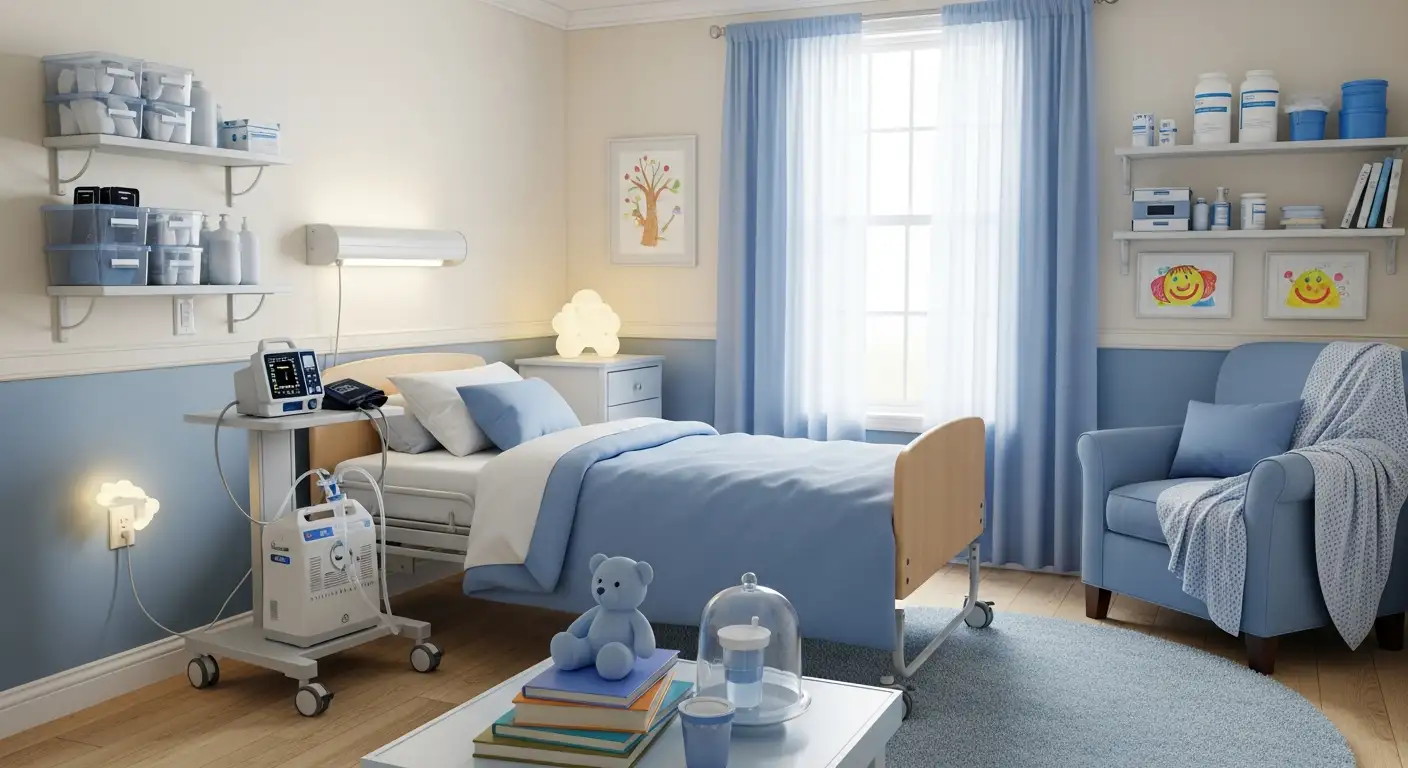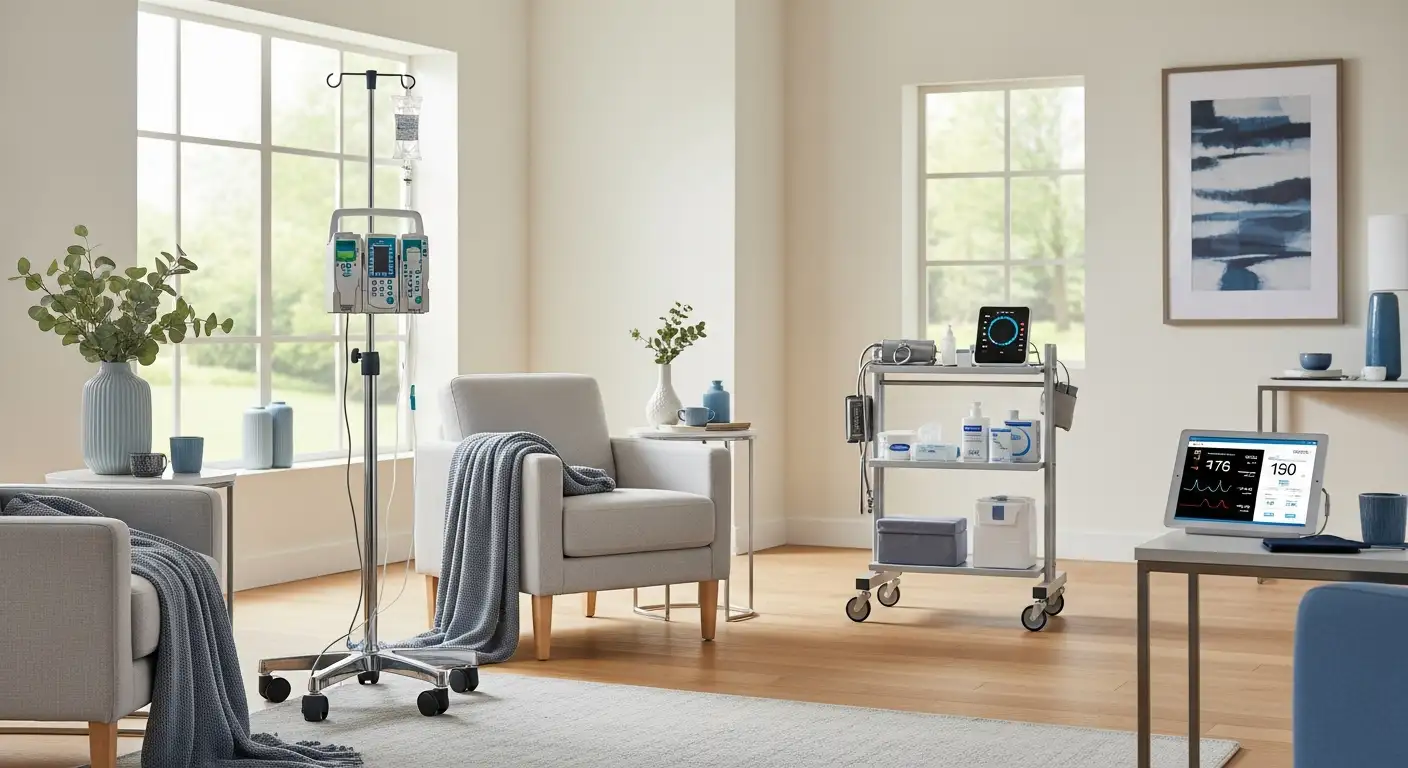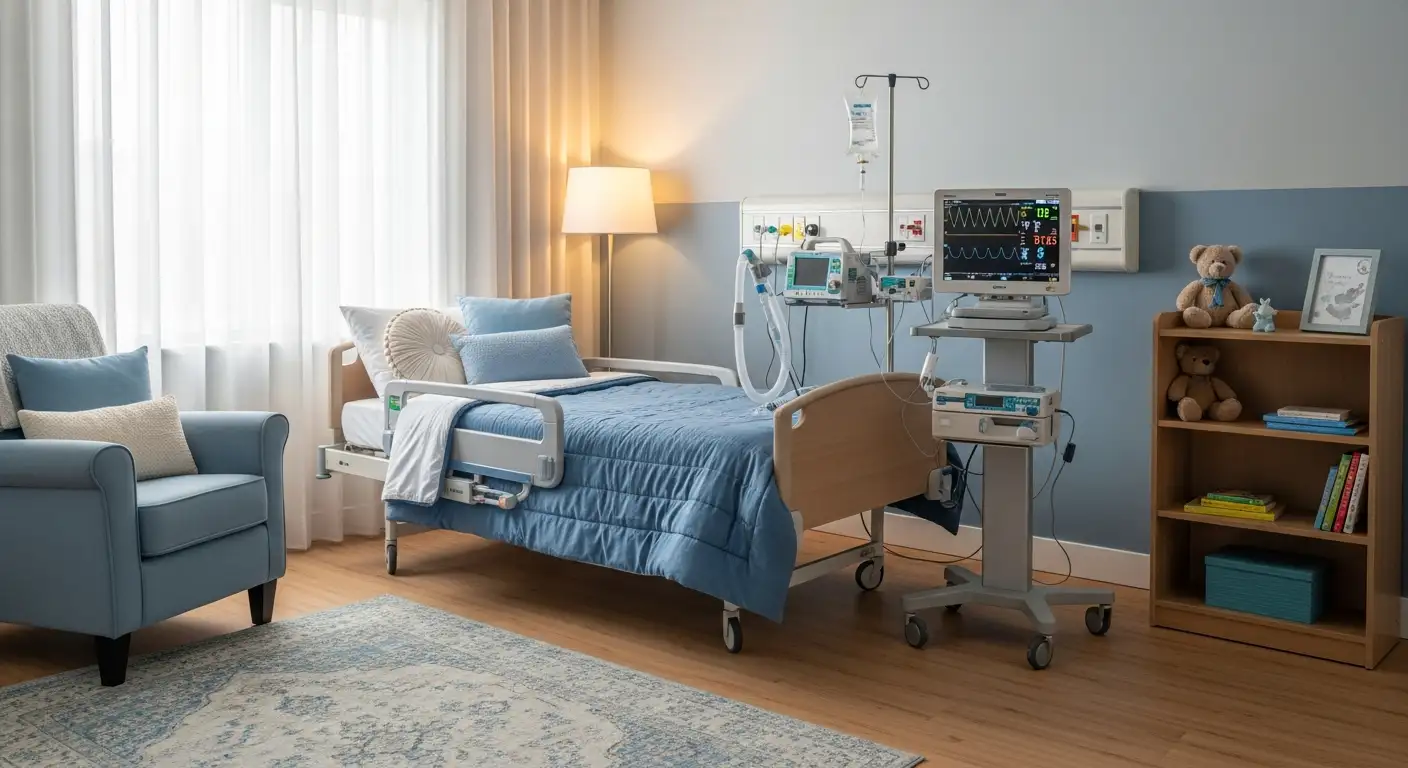The Importance of Cognitive Stimulation in Home Care
In the realm of home care, cognitive stimulation plays a vital role in promoting mental well-being and maintaining cognitive function. Understanding the concept of cognitive stimulation and recognizing its benefits are crucial in providing effective care for individuals in a home setting.

Understanding Cognitive Stimulation
Cognitive stimulation activities encompass a range of mentally stimulating exercises designed to challenge and engage the mind. These activities aim to promote mental agility, memory retention, and overall cognitive well-being. They target various cognitive domains such as memory, attention, problem-solving, and creativity, keeping the brain active and sharp [1].
Benefits of Cognitive Stimulation in Home Care
Engaging in cognitive stimulation activities offers numerous benefits for individuals receiving home care, regardless of age or cognitive ability. Here are some key advantages:
- Maintaining Cognitive Function: Regular participation in cognitive stimulation activities helps maintain cognitive function and delay cognitive decline. These activities provide the brain with mental exercise and stimulation, helping to preserve cognitive abilities over time.
- Promoting Mental Vitality: Cognitive stimulation activities contribute to a sense of mental vitality and well-being. Engaging in these activities can improve mood, boost self-esteem, and enhance overall quality of life.
- Enhancing Memory and Attention: Memory games, puzzles, and other cognitive stimulation exercises can improve memory retention and enhance attention and concentration skills. These activities challenge the brain to recall information, improve focus, and strengthen cognitive processes.
- Stimulating Problem-Solving Skills: Cognitive stimulation activities encourage individuals to think critically and solve problems. Engaging in brain teasers, riddles, and other problem-solving exercises helps individuals develop and maintain their problem-solving abilities.
- Encouraging Creativity: Art and creativity activities, such as painting, drawing, or crafting, can foster creativity and self-expression. These activities provide an outlet for individuals to explore their artistic skills and engage in imaginative thinking.
By incorporating cognitive stimulation activities into home care routines, caregivers can provide individuals with a fulfilling and mentally stimulating environment. These activities can be tailored to suit different cognitive levels and preferences, making them suitable for individuals of all ages. Encouraging participation in memory games, puzzles, art, creativity, and other stimulating exercises can have a profound impact on cognitive function and overall well-being.
Engaging Activities for Cognitive Stimulation
Engaging in cognitive stimulation activities is an important aspect of home care, particularly for individuals looking to enhance their cognitive abilities and overall well-being. Here, we will explore three popular activities that provide cognitive stimulation: memory games and puzzles, art and creativity activities, and music therapy.
Memory Games and Puzzles
Participating in memory games and puzzles offers cognitive and social stimulation, which is particularly beneficial for older individuals. Regular engagement in puzzle-solving can enhance cognitive functions such as memory, problem-solving skills, and attention span. These activities challenge the brain and help improve mental abilities [2].
Memory games and puzzles come in various forms, including crossword puzzles, Sudoku, word searches, and memory matching games. These activities can be adapted to different cognitive levels and preferences, making them suitable for individuals of all ages. They not only provide enjoyment but also help maintain cognitive function and promote mental agility.
Art and Creativity Activities
Engaging in art and creativity activities can have a positive impact on seniors with dementia, providing them with a creative outlet for self-expression and emotional engagement. When seniors participate in art activities with support from caregivers, it can improve their quality of life, enhance cognitive abilities, reduce anxiety and depression, and promote social interaction.
Art and creativity activities can include painting, drawing, coloring, and sculpting. These activities stimulate the brain, encourage imagination, and allow individuals to express themselves artistically. The process of creating art can be calming and therapeutic, providing a sense of accomplishment and boosting self-esteem.
Music Therapy
Music has a profound impact on mood, anxiety, symptoms of depression, social connections, and communication skills in individuals with dementia and other cognitive impairments. With dementia home care, seniors can engage in music therapy activities, such as listening to music, dancing, and singing along, which can bring joy to their day and provide a positive mental boost.
Listening to familiar songs can evoke memories and emotions, creating a sense of comfort and connection. Singing along and moving to the rhythm can stimulate cognitive processes and promote physical activity. Music therapy can also be guided by a professional therapist who tailors the activities to the individual's specific needs and preferences.
By incorporating memory games and puzzles, art and creativity activities, and music therapy into home care routines, individuals can enjoy the benefits of cognitive stimulation while having fun. These activities provide mental challenges, promote social engagement, and contribute to overall cognitive well-being.
Incorporating Technology for Cognitive Stimulation
As technology continues to advance, it has become a valuable tool in the field of cognitive stimulation, particularly in the realm of home care. One such technology that has shown promise is virtual reality (VR). By immersing users in realistic and interactive virtual environments, VR can enhance cognitive engagement and provide unique experiences, benefiting individuals receiving home care [1].
Virtual Reality (VR) for Cognitive Engagement
Virtual reality (VR) technology offers a wide range of possibilities for cognitive stimulation. By simulating various scenarios and environments, VR can provide engaging experiences that stimulate cognitive functions such as memory, attention, and problem-solving skills. This technology can be particularly beneficial for individuals receiving home care, as it can help alleviate feelings of isolation and provide mental stimulation.
One of the advantages of VR in cognitive stimulation is its ability to create immersive and interactive experiences. Users can explore virtual worlds, engage in cognitive challenges, and participate in activities that stimulate their cognitive abilities. For example, VR applications can offer memory games, puzzles, and interactive storytelling experiences that enhance cognitive function.
Moreover, VR has the potential to transport individuals to places they may not be able to physically visit. This can be especially valuable for individuals with limited mobility or those who are homebound. VR experiences can take them on virtual tours of museums, historical sites, or natural wonders, promoting cognitive engagement and reducing feelings of confinement.
It is important to note that while VR offers exciting possibilities for cognitive stimulation in home care, it should be implemented under appropriate supervision and guidance. Caregivers and healthcare professionals should ensure that the VR experiences are tailored to the individual's abilities and preferences. Additionally, considerations such as motion sickness and the potential impact on individuals with certain medical conditions should be taken into account.
By incorporating VR technology into home care settings, individuals can benefit from immersive and engaging cognitive stimulation experiences. Virtual reality has the potential to enhance cognitive function, provide mental stimulation, and contribute to overall well-being. As technology continues to evolve, it is likely that VR, along with other innovative technologies, will play an increasingly important role in cognitive stimulation for individuals receiving home care.
Physical Activity and Cognitive Stimulation
Incorporating physical activity into cognitive stimulation programs can have significant benefits for individuals receiving home care, particularly those with dementia. Physical activity not only contributes to overall well-being but also plays a crucial role in supporting cognitive function.
Exercise Programs for Cognitive Function
Engaging in exercise programs specifically designed to stimulate cognitive function can have a positive impact on individuals receiving home care. Physical activity/exercise programs can help maintain mobility, improve mood, and decrease behavioral disturbances for individuals with dementia. These programs typically involve a combination of aerobic exercises, strength training, and coordination exercises.
By participating in exercise programs, individuals can experience several cognitive benefits. Regular exercise can improve memory, attention, and executive functions. It also promotes neuroplasticity and the growth of new neurons, which can help maintain cognitive abilities. These exercise programs provide opportunities for individuals to challenge their cognitive abilities while also improving their physical health.
Benefits of Physical Activity in Dementia Care
Engaging in physical activity offers numerous benefits for individuals with dementia. Regular exercise can improve overall brain health and reduce the risk of cognitive decline and dementia. Exercise increases blood flow to the brain, promotes the release of growth factors that support the health of brain cells, and reduces the risk of cardiovascular diseases that can negatively impact cognitive function.
In addition to the cognitive benefits, physical activity helps alleviate boredom and frustration for individuals with dementia. Participating in games and puzzles that require physical movement can offer cognitive and social stimulation, which is particularly beneficial for older individuals. Regular puzzle-solving and engaging in cognitive challenges can help seniors improve their mental abilities, including memory, problem-solving skills, and attention span. These activities can also enhance mood and well-being by providing opportunities for mental stimulation and social interaction.
Incorporating physical activity into cognitive stimulation programs not only improves physical health but also enhances cognitive function and overall well-being for individuals receiving home care. By engaging in exercise programs and participating in mentally stimulating activities, individuals can maintain cognitive abilities, improve mood, and experience a better quality of life.
Enhancing Well-being with Cognitive Stimulation
In the realm of home care, cognitive stimulation plays a vital role in enhancing the well-being of individuals. Engaging in activities that stimulate the mind can help alleviate boredom and frustration, particularly for those with dementia. These activities contribute to enhanced mood, overall well-being, and even the potential to slow cognitive decline by maintaining neural connections and strengthening cognitive functions.
Reading and Storytelling
Reading and storytelling provide numerous benefits for both the caregiver and the individual receiving care. These activities create an opportunity for quality time together, strengthening the bond between them. When seniors are read to, it can provide comfort, promote relaxation, and create a sense of security and companionship, ultimately reducing feelings of loneliness.
Reading stimulates the imagination, stimulates memory recall, and encourages conversation and discussion. It allows individuals to explore different worlds, characters, and experiences. Caregivers can choose books that align with the individual's interests and preferences, making the activity more enjoyable and engaging. Whether it's a novel, short stories, or even picture books, reading can be a powerful tool for cognitive stimulation and emotional connection.
Games and Puzzles for Mental Agility
Participating in games and puzzles is an effective way to provide cognitive and social stimulation, particularly for older individuals. Regular engagement in puzzles and games can enhance various cognitive functions, including memory, problem-solving skills, and attention span. These activities challenge the mind, promoting mental agility and flexibility [2].
Games like crossword puzzles, Sudoku, and word searches help stimulate memory and improve vocabulary. Jigsaw puzzles require visual-spatial skills and problem-solving abilities. Card games, such as matching or memory games, encourage social interaction and cognitive stimulation. Additionally, board games that involve strategy and decision-making can provide a comprehensive cognitive workout.
By incorporating games and puzzles into home care routines, caregivers can create an enjoyable and engaging environment that benefits both cognitive function and social interaction. These activities can be tailored to the individual's abilities and interests, ensuring they remain challenging yet achievable.
In summary, engaging in activities such as reading, storytelling, and games and puzzles can significantly enhance the well-being of individuals in home care. These cognitive stimulation activities offer opportunities for mental and social engagement, promoting cognitive function and emotional connection. By incorporating these activities into daily routines, caregivers can help individuals maintain cognitive abilities, foster a sense of purpose, and create meaningful moments of joy and connection.
Cognitive Stimulation Therapy for Dementia Care
Cognitive stimulation therapy is a valuable approach in dementia care that focuses on engaging individuals in stimulating activities to improve cognitive function and enhance their quality of life. This therapy has shown effectiveness in improving cognition and overall well-being in individuals with mild to moderate dementia.
Effectiveness of Cognitive Stimulation Therapy
Research and studies have shown promising results regarding the effectiveness of cognitive stimulation therapy in dementia care. A systematic review and meta-analysis found that cognitive stimulation significantly improved cognitive function in participants with dementia [6].
Cognitive stimulation therapy typically consists of 14 sessions, each lasting around 45 minutes. These sessions are conducted twice a week over a period of seven weeks [6]. Through a range of activities and exercises, cognitive stimulation therapy aims to actively engage individuals and stimulate their cognitive abilities.
The therapy focuses on various cognitive domains, including memory, attention, language, and problem-solving. By challenging and exercising these cognitive functions, cognitive stimulation therapy aims to slow down cognitive decline and maintain cognitive abilities for as long as possible. This therapy can also have positive effects on mood, social interaction, and overall well-being.
Maintenance Cognitive Stimulation Therapy (MCST)
Maintenance cognitive stimulation therapy (MCST) is an extension program that follows the initial cognitive stimulation therapy. It is designed to provide ongoing cognitive stimulation and support to individuals with dementia. MCST typically spans over a 24-week period, building upon the foundation set by the initial therapy sessions.
MCST sessions are usually conducted once a week and aim to reinforce and maintain the cognitive gains achieved during the initial therapy. These sessions involve a variety of activities tailored to the individual's cognitive abilities and interests. By continuing the cognitive stimulation, MCST can help individuals maintain cognitive function and delay further decline.
Both cognitive stimulation therapy and maintenance cognitive stimulation therapy have demonstrated positive outcomes in improving cognitive function and enhancing the quality of life for individuals with dementia. These interventions provide valuable cognitive engagement and support, filling a crucial gap in dementia care.
Incorporating cognitive stimulation therapy and maintenance cognitive stimulation therapy into home care settings can provide individuals with dementia the opportunity to receive consistent cognitive stimulation and support in the familiar comfort of their own homes.
Home-Based Individual Cognitive Stimulation (iCS) Programs
Implementing individualized cognitive stimulation (iCS) programs in home care settings can greatly benefit individuals in maintaining and improving their cognitive functioning. These programs are designed to provide personalized cognitive stimulation activities tailored to the specific needs and abilities of each individual. By engaging in these activities, individuals can enhance their cognitive abilities and overall well-being.
Implementing iCS Programs in Home Care
Implementing iCS programs in home care involves a collaborative effort between caregivers and individuals receiving care. Caregivers play a crucial role in delivering the cognitive stimulation activities and ensuring that they are tailored to the individual's cognitive abilities and preferences.
The iCS programs can encompass a variety of cognitive stimulation activities, such as memory games and puzzles, art and creativity activities, and other mentally stimulating exercises. These activities challenge various cognitive domains, including memory, attention, problem-solving, and creativity, promoting mental agility and overall cognitive well-being.
The activities should be adapted to the individual's cognitive level and preferences. Caregivers can observe and assess the individual's cognitive abilities to determine the appropriate level of difficulty and provide suitable challenges. By incorporating a variety of activities, individuals can enjoy the benefits of cognitive stimulation while having fun and maintaining their cognitive function.
Promising Results of iCS in Improving Cognition
Research has shown promising results in the effectiveness of home-based iCS programs in improving cognition, particularly in individuals with cognitive impairment and psychotic disorders. For example, a randomized controlled trial conducted in Portugal found significant improvements in cognitive functioning, depression, quality of life, and functional abilities in participants who received the iCS intervention [7]. Another study assessed the feasibility and meaningfulness of a home-based iCS program delivered by caregivers to persons with cognitive impairment. The study found that the iCS program implemented by caregivers showed promising results in improving cognition, specifically in orientation and the ability to follow commands.
These findings highlight the potential of iCS programs as valuable interventions in home care settings. By providing engaging and personalized cognitive stimulation activities, these programs can contribute to the maintenance and improvement of cognitive functioning, enhancing the overall well-being of individuals receiving home care.
Incorporating home-based iCS programs in the care routines of individuals can bring about meaningful cognitive benefits and promote mental vitality. By working closely with caregivers and tailoring the activities to the individual's needs, individuals can experience the positive effects of cognitive stimulation in the comfort of their own homes.
References
- [1]: https://www.atpeacehealth.com/resources/cognitive-stimulation-activities-in-home-care
- [2]: https://www.comfortkeepers.com/offices/ohio/dublin/resources/resources/the-role-of-cognitive-activities-in-dementia-home-care/
- [3]: https://www.ncbi.nlm.nih.gov/pmc/articles/PMC2585781/
- [4]: https://www.ncbi.nlm.nih.gov/pmc/articles/PMC6680712/
- [5]: https://www.alzheimers.org.uk/about-dementia/risk-factors-and-prevention/physical-exercise
- [6]: https://www.ncbi.nlm.nih.gov/books/NBK554534/
- [7]: https://www.ncbi.nlm.nih.gov/pmc/articles/PMC9775072/
- [8]: https://www.ncbi.nlm.nih.gov/pmc/articles/PMC8645562/



